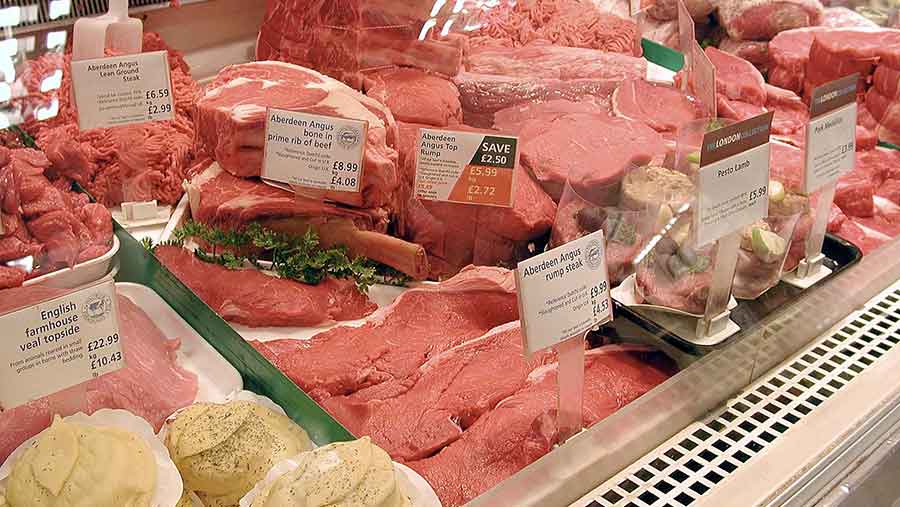Levy board defends stance on beef and lamb money
 © Alex Segre/REX Shutterstock
© Alex Segre/REX Shutterstock Levy board bosses have defended their stance about spending £15m of money raised from beef and lamb producers.
It follows criticism by farmers who believe levy payers – rather than government ministers – should have the final say in how levy money is spent.
See also: Farmers must have final say on levy money – NFU
A video produced by AHDB Beef & Lamb outlines how the levy body operates, as well as summarising the organisation’s relationship with the government and the rest of the UK.
It explains that the government is involved in AHDB decisions because levies are compulsory.
“The levy board was set up originally by a statutory instrument and this means that, under European law, they are considered to be taxes,” says the video.
A £1m advertising campaign to promote sales of “mini roast” cuts of beef and lamb is due to hit TV screens this November.
Livestock producers claim the TV campaign was delayed because government ministers were slow to sign off the campaign.
The video explains that the government is involved because the AHDB’s funding structure means its marketing work is deemed to use public funds.
“Since the Whitehall austerity drive kicked in, the AHDB’s spending is subject to additional scrutiny and approval by the government efficiency and reform group, run by the Cabinet Office.
“Without sign-off on detailed plans, we cannot push ahead with any work in this area.”
The statutory nature of levies also has a knock-on effect on messages contained in any AHDB promotional campaigns, says the video.
The levy board cannot tell consumers to buy British over alternative EU produce, it says.
But it can tell consumers to look for quality assurance marks such as the Red Tractor logo or the Quality Standard mark for British beef and lamb.
The video acknowledges that a “significant amount” of AHDB work funded by the English beef and lamb sector also benefits producers in Scotland and Wales.
It estimates there is a £7m benefit to producers across Great Britain, including market and trade development, access to export markets and communication on health and nutrition.
“There is currently a debate about how the levy is collected and whether the rules need to be changed,” says the video.
The Scots and the Welsh feel they are losing about £1.5m/year through animals that are raised in their regions but then cross the border to be slaughtered. This means the levy is collected in England.
The video says any change in formula would need government approval, a change to the statutory instrument and to take into account the two-way flow of animals.
Beef cattle and sheep raised in England but crossing into Scotland or Wales to be slaughtered result in a levy collected in those countries.
